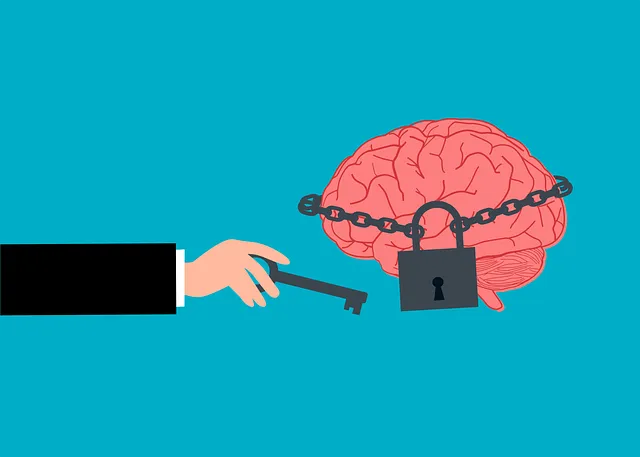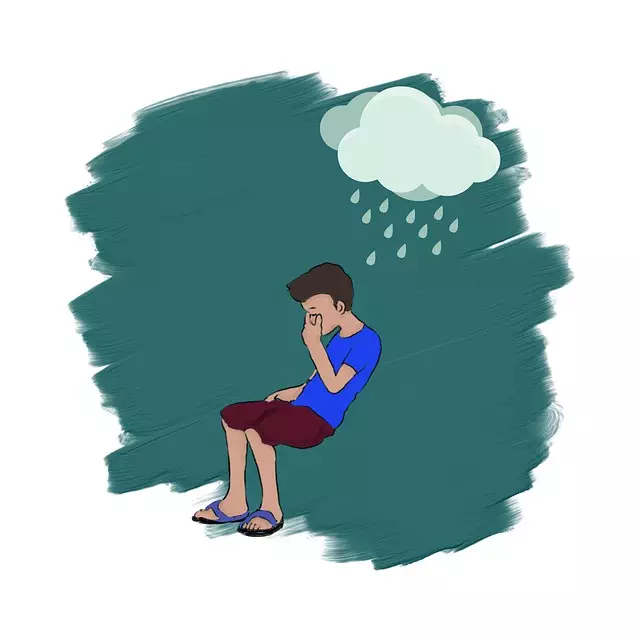Media portrayal significantly influences public understanding of mental health, with negative stereotypes perpetuating stigma and hindering access to services like those offered by Kaiser Permanente behavioral health providers in Lafayette. Inaccurate or limited representations can create misconceptions about facilities and deter individuals from seeking help for conditions like Anxiety Relief. In Lafayette, media often oversimplifies severe psychiatric disorders, leading to stigma and misunderstanding. Kaiser Permanente's experts combat this through evidence-based programs and authentic portrayals, emphasizing the importance of diverse, accurate media representation in mental health discussions. By challenging stereotypes and featuring recovery stories, media can drive positive change, promote Depression Prevention, and foster a supportive community environment for all.
In today’s media landscape, the portrayal of mental illness can significantly shape public perception and impact individuals’ willingness to seek help. This article explores the challenge of negative stereotypes surrounding mental health in Lafayette, with a focus on how the representation in media influences community attitudes. We delve into the current state of mental illness depiction, highlighting issues through the lens of Kaiser Permanente behavioral health providers’ unique insights. By examining strategies for positive change, we propose collaborative solutions involving media and community leaders to foster accurate and supportive narratives around mental wellness in Lafayette.
- Understanding the Impact of Media Portrayal on Mental Health Perception
- The Current State: How Media Often Depicts Mental Illness in Lafayette
- Kaiser Permanente Behavioral Health Providers: A Unique Perspective
- Strategies for Positive Change: Challenging Stereotypes through Representation
- Implementing Solutions: Collaborating with Media and Community Leaders in Lafayette
Understanding the Impact of Media Portrayal on Mental Health Perception

Media portrayal plays a significant role in shaping public understanding and perceptions about mental health. The way mental illness is depicted in films, television shows, and news media can influence how society views individuals struggling with these conditions. Unfortunately, negative or stereotypical representations often contribute to stigma, leading to misconceptions and fear. This, in turn, can deter people from seeking help or support, as they may feel ashamed or judge themselves based on these media portrayals.
For instance, a lack of accurate representation of behavioral health issues and the services provided by organizations like Kaiser Permanente’s Lafayette locations could perpetuate the problem. When media fails to show the reality of mental healthcare, it might create an impression that such facilities are only for severe cases or that the process is overly complicated. This misperception can hinder people from accessing much-needed support, including Social Skills Training and Crisis Intervention Guidance. Promoting accurate depictions in media can help reduce these barriers and encourage individuals to prioritize their mental well-being, even if they’re seeking Anxiety Relief.
The Current State: How Media Often Depicts Mental Illness in Lafayette

In Lafayette, mental illness is often portrayed in media with limited accuracy and sensitivity. The current state of representation typically falls short of reflecting the complexity and diversity of mental health conditions. Commonly, media depicts severe psychiatric disorders as monolithic entities, ignoring the nuanced spectrum of symptoms and experiences. This simplistic view can foster stigma and misunderstanding among the community, including the local Kaiser Permanente behavioral health providers in Lafayette.
The implications are far-reaching, affecting not only how residents perceive individuals with mental illness but also potentially influencing help-seeking behaviors. For instance, the media’s tendency to focus on extreme cases of schizophrenia or depression may discourage those struggling with milder forms of anxiety or stress from seeking appropriate self-esteem improvement strategies or burnout prevention techniques based on Mind Over Matter principles. Accurate and empathetic portrayals are crucial in challenging these misconceptions and fostering a more supportive environment for mental health discussions in Lafayette.
Kaiser Permanente Behavioral Health Providers: A Unique Perspective

Kaiser Permanente Behavioral Health Providers offer a unique perspective on mental illness representation in media. As organizations dedicated to providing comprehensive mental health services, they bring a depth of understanding and expertise that is often missing in mainstream media portrayals. In cities like Lafayette, where Kaiser Permanente has established a strong presence, these providers play a pivotal role in shaping public perception by offering evidence-based treatments and support services, including Trauma Support and Depression Prevention programs designed to meet the specific needs of their communities.
Their work highlights the importance of authentic representation in media, which can significantly impact how mental health issues are understood and addressed. By sharing their insights, Kaiser Permanente Behavioral Health Providers contribute to a more nuanced conversation around mental wellness, fostering an environment where individuals feel supported and empowered to seek help without stigma or judgment. This collaborative approach not only enhances Mental Health Education Programs but also encourages a collective effort to revolutionize the way society perceives and cares for those facing mental health challenges.
Strategies for Positive Change: Challenging Stereotypes through Representation

The media plays a significant role in shaping public perception about mental illness, and accurate representation is crucial for fostering understanding and reducing stigma. One powerful strategy to drive positive change is by challenging stereotypes through diverse and authentic portrayal of individuals with mental health conditions, especially in platforms like television and film. By showcasing the complexities and resilience of these characters, media can contribute to a more empathetic society. For instance, featuring stories of recovery, exploring various therapeutic approaches, or highlighting the role of supportive networks like Kaiser Permanente behavioral health providers in Lafayette, can offer viewers hope and accurate insights into mental healthcare.
This shift towards more inclusive representation goes hand in hand with promoting Depression Prevention, Inner Strength Development, and Cultural Sensitivity in Mental Healthcare Practice. When media portrays mental illness without perpetuating harmful stereotypes, it encourages conversations that lead to better access to resources and improved treatment outcomes. Such representations can inspire individuals to seek help, encourage community support, and ultimately contribute to a more inclusive and supportive environment for all, regardless of their mental health status.
Implementing Solutions: Collaborating with Media and Community Leaders in Lafayette

In Lafayette, addressing mental illness representation in media involves a collaborative approach. Kaiser Permanente behavioral health providers play a pivotal role by partnering with local media outlets and community leaders. This partnership facilitates more accurate and sensitive portrayals of mental health in the region’s media landscape. By engaging with these stakeholders, healthcare professionals can implement effective burnout prevention strategies for healthcare providers, ensuring they are equipped to handle discussions around mental wellness.
Through open dialogue, these collaborations foster better communication strategies. Media leaders learn about the nuances of mental illness, while community members gain access to accurate information and support systems. Additionally, initiatives like promoting mental wellness journaling exercise guidance empower individuals to take proactive steps towards mental well-being, fostering a more informed and supportive community in Lafayette.
Mental illness representation in media plays a pivotal role in shaping public perception. By challenging stereotypes through accurate and diverse portrayals, we can foster a more understanding and supportive community in Lafayette. Collaboration between media outlets, community leaders, and Kaiser Permanente behavioral health providers is essential to drive positive change. Through collective efforts, we can ensure that mental health discussions in Lafayette are informed, empathetic, and empowering for all individuals affected by these conditions.






